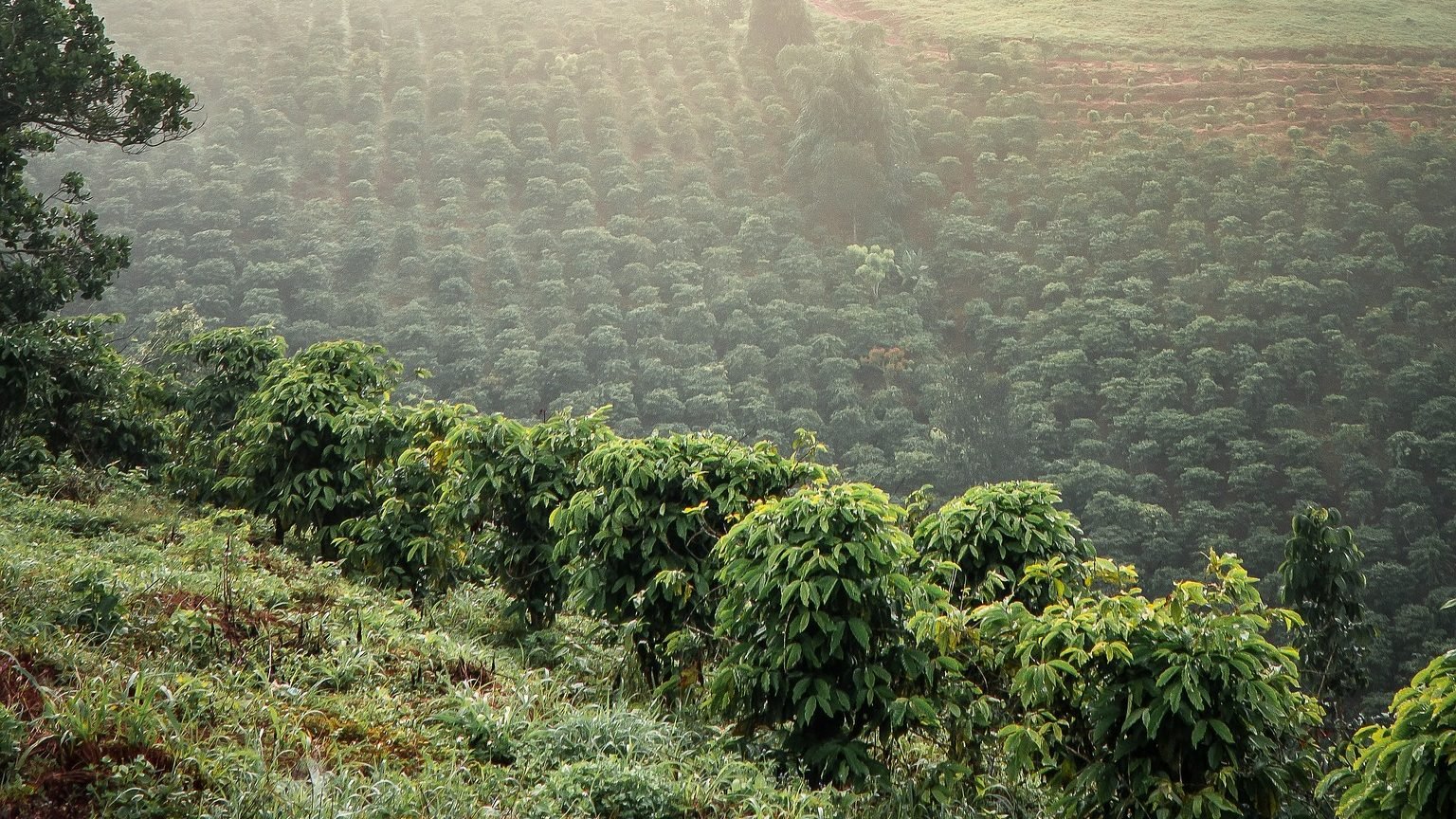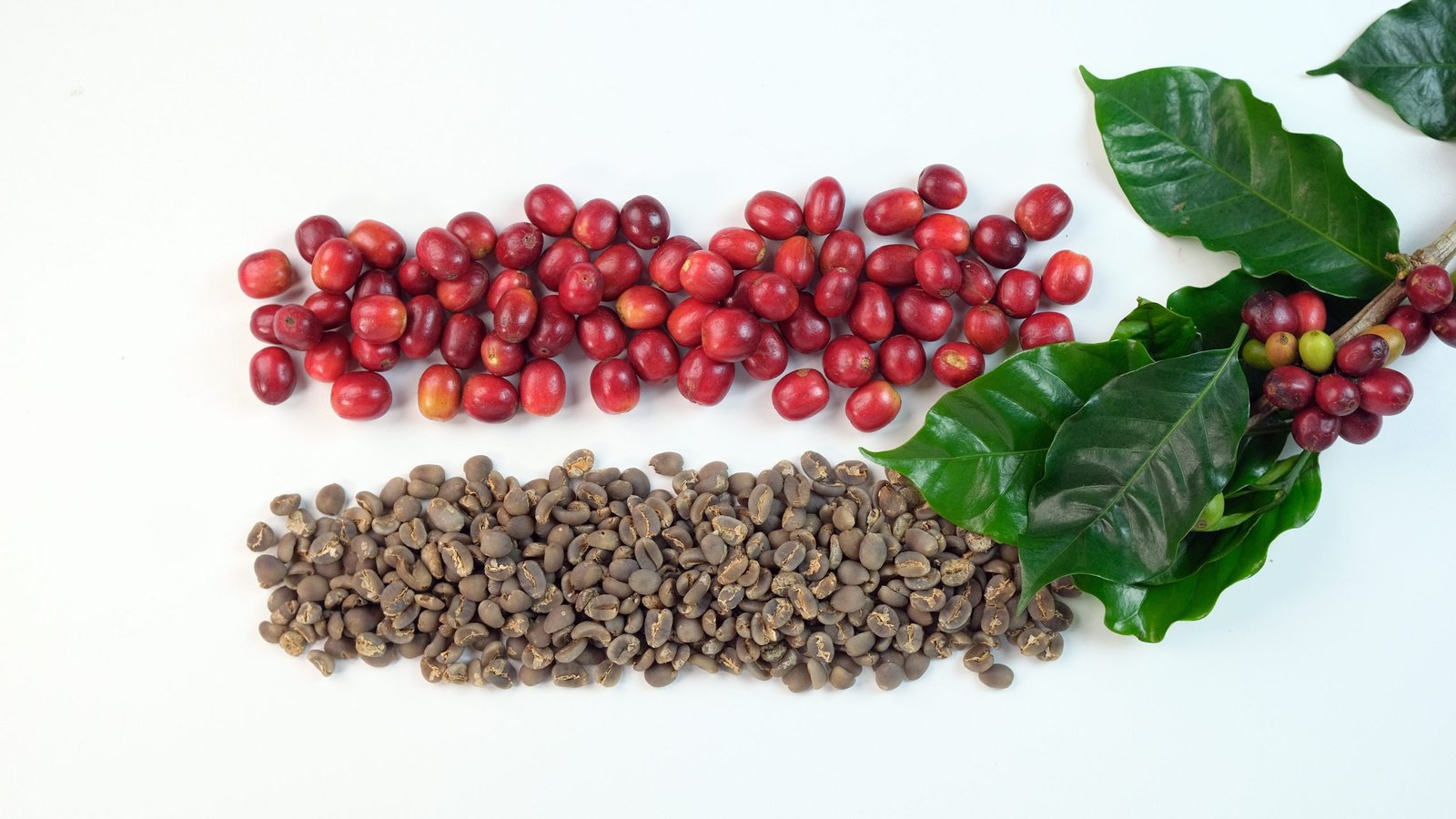7 Sustainable Coffee Farming Practices You Need to Know

Sustainable coffee farming is important to the world economy, but it also has a large environmental impact. Adopting sustainable methods is critical for the coffee industry’s long-term existence. In this post, we will look at ten fundamental sustainable coffee farming practices that encourage environmental conservation, help local communities, and ensure high-quality coffee bean production.
Also Read: Indonesian Coffee Beans: Flavorful Delights with Mandheling Coffee
Table of Contents
1. Shade-Grown Coffee
Shade-grown coffee is the process of growing coffee plants under a canopy of trees, simulating coffee’s natural environment in the understory of forests. Shade-grown coffee, as opposed to sun-grown coffee, which is produced in open fields with little to no shade, preserves the ecological balance and provides several benefits for both the environment and coffee quality.
- Conservation of Biodiversity: Shade-grown coffee farms maintain different ecosystems and provide refuge for wildlife.
- Ecosystem Health: Canopy trees contribute organic matter, enhance soil fertility, and reduce the need for synthetic fertilizers.
- Pest Control: Shade trees create a microclimate that naturally controls pests and diseases.
- Soil Conservation: The tree roots prevent soil erosion, maintaining soil productivity.
- Climate Change Mitigation: Shade-grown coffee farms act as carbon sinks, reducing greenhouse gas emissions.
- Coffee Quality: Slower maturation and optimal bean development result in higher-quality coffee with complex flavors.
To promote and validate shade-grown coffee production, certification schemes such as Rainforest Alliance and Bird-Friendly Coffee have been formed. Customers may support sustainable agricultural techniques, biodiversity conservation, and the production of high-quality coffee by purchasing shade-grown coffee.
2. Agroforestry
Agroforestry is a type of sustainable coffee farming that involves combining trees with agricultural crops such as coffee. This strategy has various environmental and agricultural production benefits:
- Soil Fertility Improvement: Trees in agroforestry systems improve soil fertility by decomposing leaf litter and organic materials. The decomposing leaves release nutrients into the soil and improve its overall fertility. Natural nutrient cycling eliminates the demand for synthetic fertilizers while also encouraging healthy crop growth.
- Carbon Sequestration: Agroforestry helps to mitigate climate change by removing carbon dioxide from the atmosphere. Trees absorb carbon during photosynthesis and store it in their biomass and soil. This helps to mitigate climate change by offsetting greenhouse gas emissions.
- Microclimate Control: Trees in agroforestry systems provide a microclimate that helps crops such as coffee. Shade is provided by trees, which reduces temperature extremes and protects coffee plants from severe heat or frost. This microclimate management improves crop resilience and supports optimal growing conditions.
- Biodiversity Conservation: Agroforestry systems promote biodiversity by providing habitats for various plant and animal species. The diverse mix of trees and crops creates a favorable environment for beneficial insects, birds, and other wildlife. This biodiversity supports natural pest control, pollination, and ecological balance.
- Water Management: Trees in agroforestry systems aid in the regulation of water availability and the prevention of soil erosion. During periods of heavy rainfall, their thick roots absorb excess water, preventing runoff and soil erosion. During dry spells, trees release stored water into the soil, providing moisture for crops and ensuring water availability.
- Economic Sustainability: Agroforestry systems can help farmers diversify their income streams. In addition to coffee, the trees in these systems can provide fruits, lumber, or medicinal plants. Diversification increases economic resilience and decreases reliance on a single crop.
Farmers can improve soil fertility, mitigate climate change, conserve biodiversity, manage microclimates, and promote sustainable livelihoods by implementing agroforestry practices in coffee cultivation. Agroforestry is a comprehensive technique that promotes a harmonious interaction between agriculture and the environment, ensuring long-term sustainability in coffee production.
3. Organic Farming
Organic farming is a farming method that emphasizes the use of natural and ecologically friendly procedures while avoiding the use of synthetic pesticides, genetically modified organisms (GMOs), and synthetic fertilizers. Organic approaches in sustainable coffee farming provide various advantages:
- Environmental Preservation: Organic coffee farming avoids synthetic chemicals, preserving biodiversity and maintaining water quality.
- Soil and Water Conservation: Organic practices enhance soil fertility and water retention through methods like composting and crop rotation.
- Protection of Farm Workers’ Well-being: Organic farming reduces exposure to harmful chemicals, creating safer working conditions for farmers.
- High-Quality Coffee: Organic cultivation allows coffee cherries to develop unique flavors and aromas, resulting in superior taste and quality.
- Consumer Health and Safety: Organic coffee is free from residues of synthetic pesticides, ensuring a safer and healthier choice for consumers.
- Market Demand and Premium Pricing: The growing demand for organic products, including coffee, offers market opportunities and potential for higher prices.
While organic growing brings some obstacles, such as managing pests and diseases without the use of synthetic pesticides, it provides a holistic and environmentally conscientious approach to coffee production. Coffee growers that embrace organic practices contribute to a better ecosystem, preserve their personal well-being, and meet the growing demand for sustainable coffee farming and high-quality organic coffee.
Also Read: Environmental Impact and Taste: Organic vs Non Organic Coffee
4. Water Management
Water management in sustainable coffee farming plays a critical role in agriculture. Here are the key aspects and benefits of effective water management practices:
- Rainwater Harvesting and Recycling: Rainwater capture and recycling systems supplement irrigation needs and reduce dependence on external water sources.
- Efficient Irrigation Methods: Precise irrigation methods minimize water waste and optimize water usage in coffee farms.
- Protecting Water Quality: Buffer zones and vegetation strips filter runoff, reducing the risk of water pollution and preserving water sources.
Water management in coffee cultivation improves agricultural productivity, decreases water waste, maintains water quality, and promotes long-term environmental sustainability. Coffee producers can ensure the supply of this crucial resource while limiting their environmental footprint by employing effective irrigation systems, saving water resources, and adjusting to changing climate conditions.
5. Soil Conservation
Soil conservation is essential in sustainable coffee farming to maintain soil health and productivity. Here are the key aspects and benefits of soil conservation practices:
- Terracing and Contouring: Creating level steps and following natural contours on sloped areas minimize soil erosion and retain soil structure and fertility.
- Cover Cropping: Planting specific crops during non-coffee growth periods protects the soil from erosion, improves soil structure, and adds organic matter.
- Composting and Organic Matter Addition: Converting organic waste into nutrient-rich compost and incorporating it into the soil enhances fertility, water retention, and beneficial microbial activity.
Coffee producers may protect the soil from erosion, maintain its fertility, promote sustainable crop growth, and limit the environmental impact of farming activities by employing soil conservation methods. Healthy soils contribute to the long-term viability of coffee production and overall ecosystem health.
6. Biodiversity Preservation
- Planting Native Trees and Shrubs: Including native species supports wildlife habitats and ecological balance.
- Creating Wildlife Corridors: Designating pathways allows for the movement of wildlife and promotes genetic diversity.
- Natural Pest Control Methods: Using biological controls reduces reliance on synthetic pesticides and supports a healthy ecosystem.
Coffee producers actively contribute to the preservation of biodiversity by applying these techniques, which include planting native trees and shrubs, building wildlife corridors, and using natural pest control methods. These approaches serve to keep ecosystems in balance, offer habitat for wildlife, and improve the overall sustainability and resilience of coffee-growing systems. Biodiversity conservation is not only important for the long-term health of the ecosystem, but it also plays an important role in guaranteeing the viability of coffee production in the future.
7. Fair Trade and Ethical Partnerships

- Fair Prices and Social Responsibility: Fair trade sustainable coffee farming practices attempt to ensure that farmers receive fair prices for their products, allowing them to maintain a sustainable livelihood. Fairtrade certification organizations create minimum pricing requirements that cover the cost of production while also providing farmers with a fair wage. Coffee buyers and roasters contribute to poverty reduction, improved living circumstances, and social development in coffee-producing communities by paying fair prices. Transparency, accountability, and ethical business practices are also promoted by fair trade throughout the supply chain.
- Local Community Support: Ethically sustainable coffee farming partnerships prioritize the well-being and empowerment of local communities. This includes investing in community development projects, encouraging gender equality and social inclusion, and supporting education and healthcare programs. Buyers and roasters can help the region’s general socioeconomic growth by collaborating closely with coffee-producing communities. This assistance contributes to the development of stronger and more resilient communities, improves the quality of life for coffee farmers and their families, and develops pride and ownership in the local coffee sector.
The coffee business may have a positive and long-term impact on the lives of coffee growers and their communities by embracing fair trade and ethical relationships. Fair prices and social responsibility ensure that farmers are fairly compensated for their efforts and commitment. Supporting local communities through various programs aids in the resolution of social issues, the promotion of economic empowerment, and the development of a more inclusive and equitable coffee supply chain. These methods contribute to a more ethical and responsible coffee sector that promotes the well-being of farmers and communities while simultaneously providing consumers with high-quality, sustainable coffee farming.
Conclusion
Adopting sustainable coffee farming cultivation practices is critical for the coffee industry’s future. Coffee growers may preserve biodiversity, protect ecosystems, and produce high-quality coffee by using shade-grown coffee, agroforestry, and organic farming practices. Water conservation, soil conservation, and biodiversity protection all contribute to sustainability. Measures like fair trade, energy efficiency, and climate change adaptation promote a responsible and resilient coffee sector. Let us work together to promote sustainable coffee farming and enjoy a greener brew that benefits the environment and the communities that cultivate our cherished beverage.











